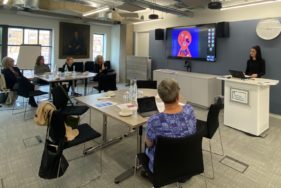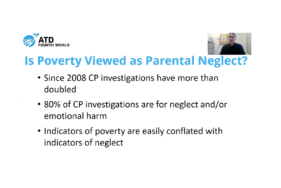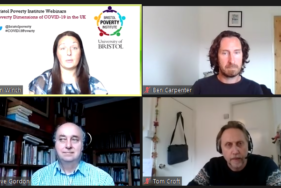Research: Understanding Poverty in All Its Forms
ATD Fourth World is proud to release the findings of Understanding Poverty in All Its Forms.
This innovative research project, conducted in collaboration with researchers at the University of Oxford in 2016-2019, brought together professionals, academics and people with first-hand experience of poverty to change the ways in which poverty is understood and talked about by decision makers and governments.
The nature of poverty is changing. Ideas and measurements are often defined without talking to those directly affected or it is measured solely according to income. With international research carried out in Bangladesh, Bolivia, France, Tanzania and the United States as well as the UK, Understanding Poverty in All Its Forms aimed to build consensus around the best ways to determine the dimensions of poverty, how to measure them and how to eradicate it once and for all. The study is participatory throughout.
“There are several aspects of this project which make it important, and especially so in the current climate,” said one member of the research team. “The focus on collaborative working brings together the direct experiences of those living in poverty and the expertise of researchers.
“While researchers and academics have access to the means of drawing attention to serious financial and social inequalities, their voice is especially powerful when it imparts the first-hand knowledge of those who suffer discrimination and disadvantage.”
Here in the UK, the research team steered the project, discussed findings and debated conclusions that emerged from data gathered from peer groups in three different regions across the country. These diverse peer groups reflected the different ways poverty is experienced by working-age adults.
By generating this debate, merging knowledge and engaging with policy and practice communities throughout the duration of the research, the ultimate goal of this project was to support efforts to end poverty in all its forms. The findings of this research, launched on 14 October 2019, are available for free download at:
Latest news
Poverty-Aware Practice and the Psychological Impact of Poverty
On 3 October 2022, the Nuffield Family Justice Observatory invited Francesca Crozier-Roche and Diana Skelton to speak to its Stakeholder (…) Read more
Deep Structural Inequality in the Child Protection System
On 3 February 2021, Thomas Croft spoke on behalf of ATD Fourth World to the Association of Child Protection Professionals (…) Read more
Bristol Poverty Institute Webinar
On 11 June 2020, the Bristol Poverty Institute hosted a webinar on “Poverty Dimensions of COVID-19 in the UK”. ATD (…) Read more





